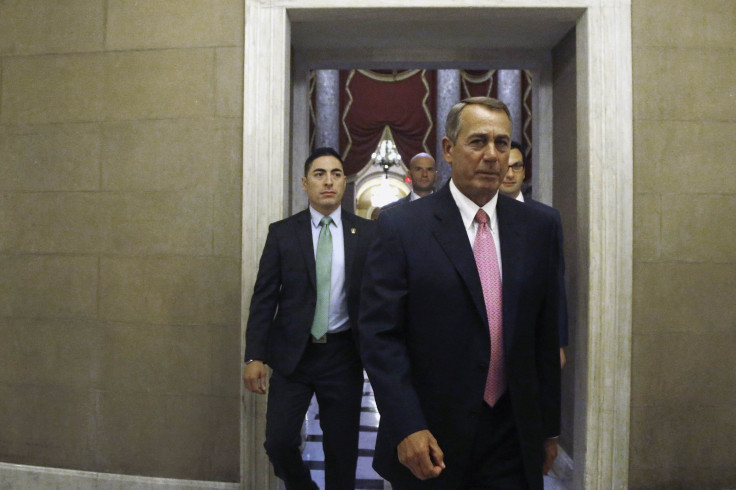Conservative Republican Tactics Fuel Bipartisanship, Inadvertently

WASHINGTON -- The small but determined crew of staunch conservatives in the U.S. House of Representatives has managed to create something that longtime leaders in Washington have only dreamed of achieving: bipartisanship. Right-wingers push Speaker John Boehner of Ohio relentlessly to oppose President Barack Obama on every issue, at every opportunity. But instead of scoring big wins for the GOP, each time House conservatives dig in for a fight, moderate Republicans have ultimately allied themselves with Democrats, and bipartisanship has prevailed.
With a series of fiscal votes in the pipeline -- a budget vote this spring, spending legislation due by September and a debt-ceiling increase in the fall -- conservatives will have many chances to see their formula work its unintended magic.
With one exception, the bill that set up the funding fight over the Department of Homeland Security, every spending bill that has been signed into law since Republicans took over the House has passed with a majority of votes coming from Democrats. It’s become almost a ritual: Conservatives hatch a plan to further their agenda; it fails in the Senate; another version fails in the House; and then Democrats step in to deliver the needed votes to end the crisis.
At the end of each fight, the same question arises: Will fed-up conservatives try to oust Boehner? That’s unlikely, since removing the speaker would require Democrats to vote. And why would they go along, given that the alternatives would be worse and the current structure works so well for Democrats?
After each crisis is resolved, House Democrats find microphones and bask in the glow of another victory, casting themselves as the saviors. “This is a good day for America, the Congress worked today,” Minority Whip Steny Hoyer of Maryland said Tuesday after the Homeland Security funding bill finally passed. Minority Leader Nancy Pelosi of California echoed him. “We are here to keep the American people safe. We are very proud of the vote that happened today.”
It didn’t have to be this way. In December, the so-called cromnibus spending bill passed with a majority of Republicans and a smaller number of Democrats. That’s because Republicans didn’t overplay their hand. They included two controversial policy riders -- change to election laws and the Dodd-Frank Wall Street Reform Act -- that annoyed Democrats, but were small enough to gain Obama’s signature. In other words, the one time when Republicans didn't include dealbreakers or so-called poison pills in the spending legislation, it passed with Republican votes.
But instead of employing the cromnibus as a model, Republicans went back to their scorched-earth approach, tying immigration rollbacks that Democrats would never support (and Obama would never sign) to funding for Homeland Security. That played out the same way as when Congress ended the shutdown in 2013, with a bipartisan deal, in this case with one struck by Republican Mitch McConnell and Democrat Harry Reid, the leaders of their parties in the Senate. Or when Congress voted to accept the two-year budget deal negotiated by the bipartisan team of Rep. Paul Ryan and Sen. Patty Murray. Or when they voted to avert the fiscal cliff in 2012 with -- yep! -- bipartisan support.
Attention now turns to crafting a budget and writing spending legislation for the next fiscal year. Conservative Republicans are no doubt ready to put up a fight, which means Boehner can probably expect to find himself negotiating with Pelosi, and Democrats can look forward to another chance to save the day, and the millions of Americans who have hungered for bipartisanship will, oddly, get at least a version of what they wanted.
© Copyright IBTimes 2024. All rights reserved.






















